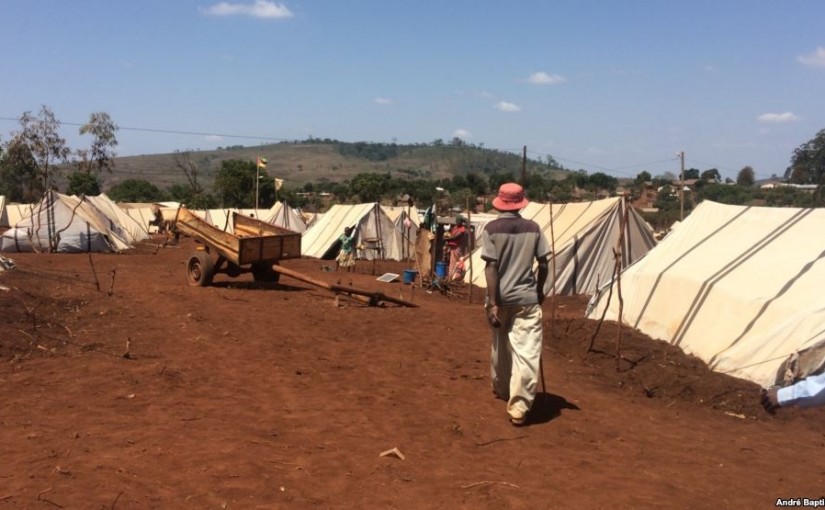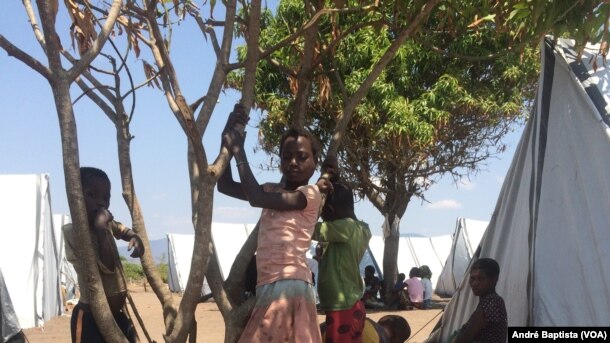Mozambique: Court suspends Nuvunga defamation trial – AIM report | Watch
Fleeing war and hunger: Number of displaced people in Mozambique increases

Voa / Vanduzi camp
The number of people displaced as a result of political and military unrest in the Mozambican province of Manica has increased dramatically, with four accommodation centres created to give safe haven to those fleeing areas affected by violence.
The latest camp in Vanduzi received 1,016 displaced from 11 areas affected by the conflict in two weeks, a number which, added to shelters in Mossurize, Gondola and Barue, makes a total of about six thousand displaced people.
As a result, two or three families, each with an average of five members, are required to share a six-square-metre tent.
Fatima Saide, a newcomer to the Vanduzi camp, says she fled the war in Nhahala with her seven children because of attacks, describing violent murders in her home area and not enough food to even stave off hunger.
Vailete Chiringa, who fled burning houses and barns in Chiuala with 10 members of his family, reports times without water and efforts to curb water-borne diseases in the camp.
Hungry stomachs and pale faces betray the poverty and hunger of the thousands of displaced people who receive sporadic distributions of food by the National Institute of Disaster Management, who oversee the four accommodation centres in Manica province.
In the small passage ways between the tents, lack of food is witnessed by the empty clay pots and extinguished fires, with the occasional noisy outbreak of a shared meal, usually consisting of beans and xima (corn flour).
“The biggest problem we have is hunger. The government supports us, but there is not enough for everyone,” head of the more recently established Vanduzi accommodation centre Rogerio Abril says. “We need more tents and food to meet the need.”

The new Vanduzi centre opened two weeks ago with 125 families from Nhamatema, Pungue Sul, Chiuala, Honde, Guta, Mucombedzi, Pina, Macossa Crossing, Mossurize, Dombe and Chemba (Sofala), now-depopulated areas where clashes between government forces and the armed wing of Renamo are frequent.
Inacio Baera, from Mossurize, says that people “want to go home and live as before, because our current situation is not dignified”. “If we were at home we would have plenty,” he says.
In Manica there are four accommodation centres for victims of drought and political and military tension, all opened within the last six months: Mossurize, which houses the largest number, followed by Vanduzi and Báruè with 646 and Gondola with 115 people.












Leave a Reply
Be the First to Comment!
You must be logged in to post a comment.
You must be logged in to post a comment.